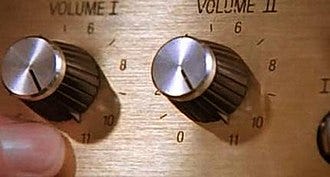Outside of chess and poker, the game I’ve played the most is Magic: The Gathering. In Magic you have a deck, which is basically like an opening in chess, but every time you learn a new one you have to spend hundreds of dollars on new cards. It’s a lot of fun.
Anyway, there’s a Magic streamer I really like named Andrea Mengucci. For a long time I was really confused because every time I watched him stream he would be playing a terrible deck and making lots of mistakes, but when the Pro Tour rolled around he would always have the best deck and play great.
Then I realized that these two traits weren’t opposed, they were closely linked. What allowed him to do so well in the Pro Tour was that he gave himself space to experiment wildly when the stakes were low. Then when the stakes got high he used everything he had learned to give himself the best chance to win.
A lot has been said about the importance of over-the-board chess: It’s slower, more intense, more focused. But maybe a hidden benefit of OTB chess is that it opens up a space for experimentation by making online chess feel less important in comparison. If you only play online, then online chess becomes your Pro Tour, and you get scared to experiment. But players who play OTB regularly tend to see online as practice.
Whether or not you practice this exact scheme of division, it’s important to have some games where you feel comfortable experimenting. Beliefs about style or weaknesses can become self-fulfilling prophecies. You typecast yourself as someone who can’t attack, or can’t play endgames.
For this reason I love to use over-adjustment as a strategy. Imagine you want to get better at sacrificing material. Also imagine that an impartial observer could see that on a scale of 1-10, where 5 is the perfect willingness to sacrifice material, you are a 2. What kind of change would you be likely to make?
Your first reaction is probably going to be to go to 3. This feels like a big change: you increased your willingness to sacrifice by 50%! Of course, to the impartial observer, you only made a small change on the 1-10 scale, but you don’t know about 1-10. Your whole world is 2.
So what’s likely to happen is that the results of the experiment are unsatisfying, because (unbeknownst to you) you went from an anemic strategy to a slightly less anemic strategy. You’re unlikely to see a big difference.
The better strategy is to make what feels like a ridiculously huge over-adjustment. You may overshoot the mark, but you’ll get a better sense of the space of possibility that will then allow you to hone in on what actually makes sense.
Who knows, you might find out you’ve got more Mikhail Tal in you than you thought.





As someone who is lucky enough to play OTB once a week, I do see online as practice. But I use it to practice opening lines. In this article, you have opened my online practice to go beyond opening lines, and practice other aspects. Thank you or that!
Also love the nod to Spinal Tap with the picture.
Aww MTG is so nostalgic for me; I started in 5th grade, when Ice Age and 5th Edition were the latest expansions, and my best card was something like a 5/5 flying for 8 mana that you had to sacrifice something to keep alive, haha. At least we don't have power creep in chess (buffing the pawn to move two squares perhaps?). I'm still surprised by the overlap in these communities: lots of poker players and Nepo an avid Hearthstone player. HS was my gateway to chess: I was reading about how it uses the Elo system, which reminded me chess was a thing, and I've been hooked ever since. I currently use my casual Friday rapid games at Panera as a chance to experiment wildly (and throw any club members off my opening trail ;) ). Definitely keeps it fresh to mix it up in a lower-stakes setting.